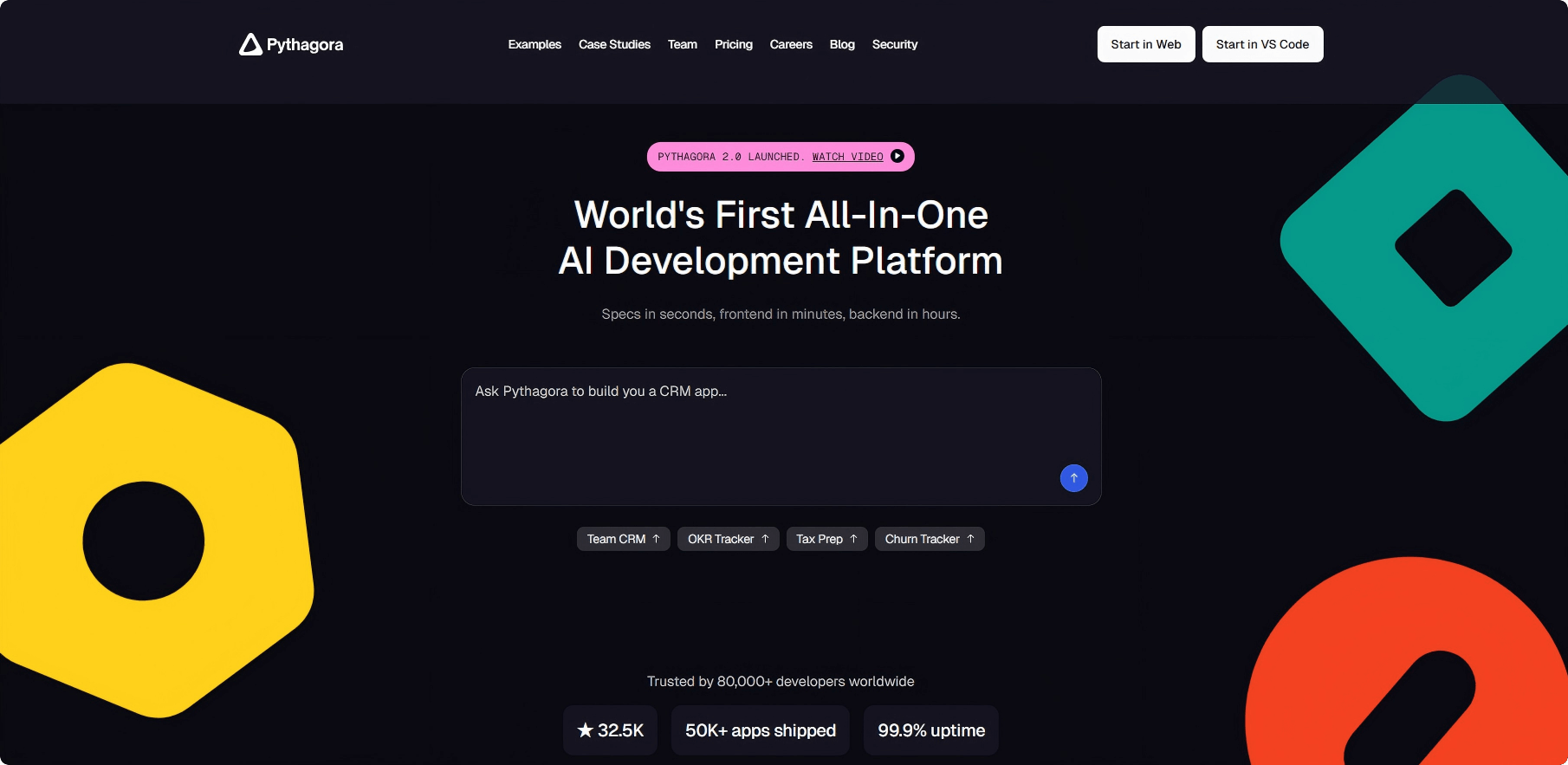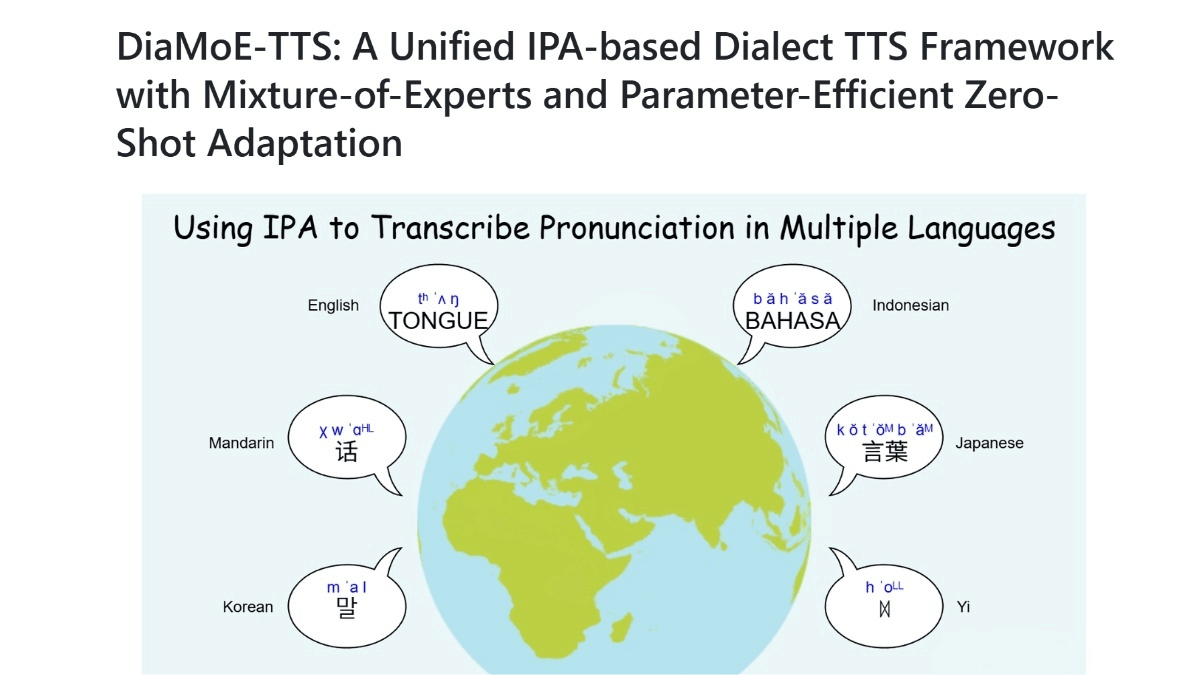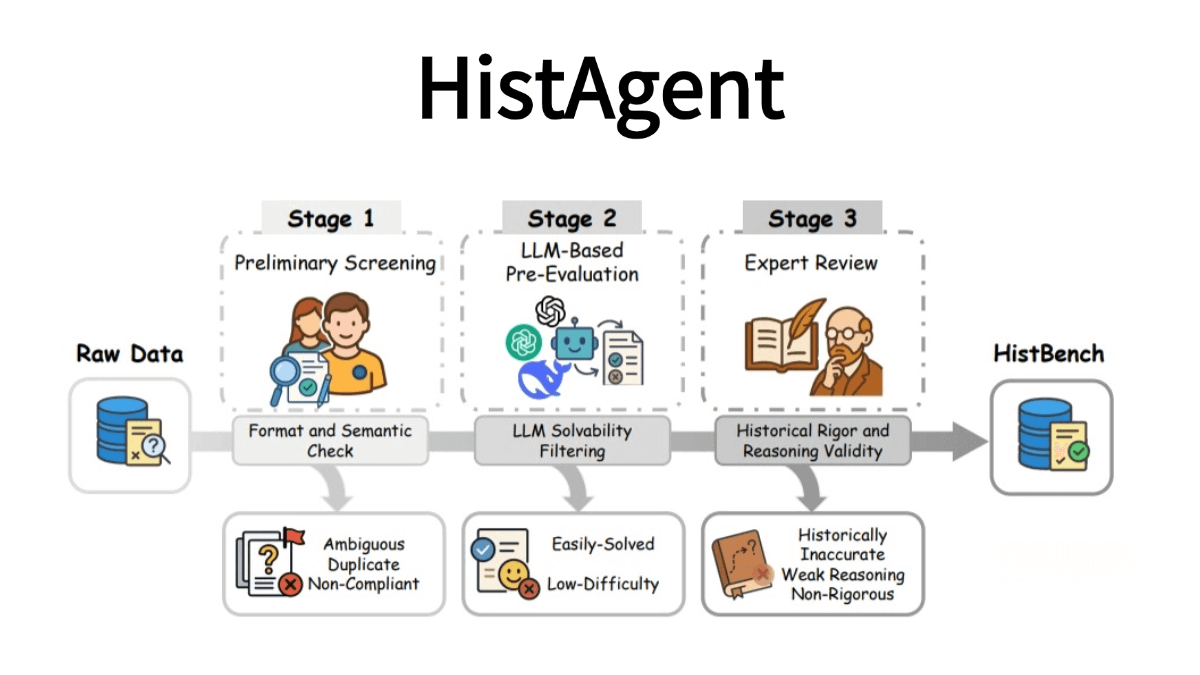Pythagora:The world’s first integrated AI development platform
What is Pythagora?
Pythagora is an end-to-end AI-powered development platform backed by Y Combinator, designed to let developers build and deploy real, production-ready full-stack web applications using natural language. It turns conversations into applications with features spanning planning, code generation, debugging, testing, and deployment.

Key Features
-
Project Planning
Describe your idea in plain English, and Pythagora will break it down into backend routes, frontend components, APIs, and dev tasks. -
Full-Stack Code Generation
Automatically generates a working app using React (frontend), Node.js (backend), MongoDB or SQLite (databases), and REST APIs. -
Debugging & Code Review
Features live logs, breakpoints, Git integration, and inline AI-powered code review—all within VS Code or any supported IDE. -
Automated Unit Testing
Uses GPT-4 and AST (Abstract Syntax Tree) analysis to generate Jest unit tests that cover edge cases and uncover bugs. -
One-Click Deployment
Easily deploy to AWS or export to run on your own infrastructure. No vendor lock-in. -
Full Code Ownership
All source code, Git history, and deployment config files belong to you—100% customizable and self-hostable. -
Collaborative Development
Supports real-time collaboration with teammates via pair programming and shared development environments.
How Does It Work
-
GPT Pilot Engine
Pythagora integrates up to 14 AI agents, each specialized in architecture planning, task breakdown, implementation, testing, debugging, documentation, and deployment. -
AST-Based Code Understanding
Uses Abstract Syntax Tree parsing to extract function behavior and automatically generate precise unit tests. -
IDE Integration
Seamlessly works with VS Code, Cursor, and other environments for a native developer experience. -
Containerized Deployments
Generates container-ready apps for fast AWS deployment or portable self-hosted solutions.
Project Links
-
Official Website: https://pythagora.ai
Use Cases
1. Rapid MVP & Prototyping
Startups, solo builders, and product managers can turn ideas into demos quickly using plain English prompts—no boilerplate needed.
2. Internal Tools & Business Automation
Ideal for building CRMs, tax portals, OKR dashboards, or client management systems to streamline operations and save time.
3. Low-Code / No-Code Service Providers
Example: Developer Alexandru Ionut built and sold a custom app worth $5,000 in just a few days using Pythagora.
4. Tech Education & Learning
Educators and self-learners can use Pythagora to understand the full-stack dev lifecycle—from architecture to testing to deployment.
5. Accelerated Delivery for Freelancers & Agencies
Skilled developers can speed up repetitive dev tasks (boilerplate setup, routing, basic CRUD) and focus on higher-level problems.
6. Automated Testing & QA Enhancement
AST-based unit test generation helps detect edge cases and bugs, improving app reliability and codebase quality.
Related Posts




